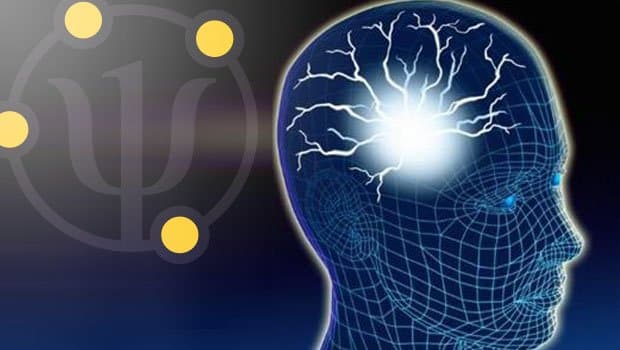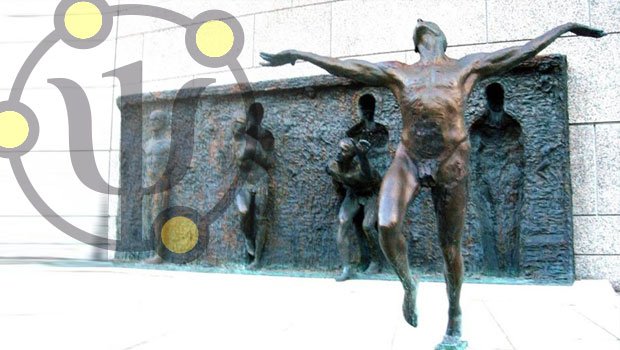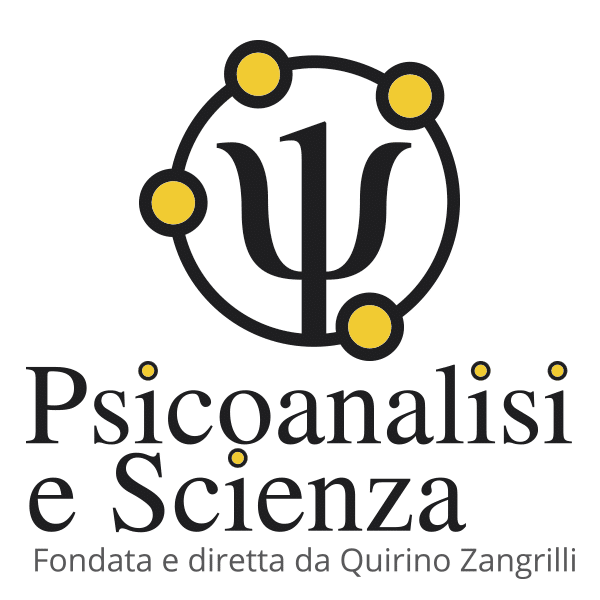Organ transplants relative to the serious pathologies of many organs have already been part of the clinical practise for the past ten years. They form the extreme hope of saving a life and allowing the patient to return to a relatively normal existence. The progress in science and in medical technology has been imposing but many difficulties still remain which limit the amount of transplants performed and the positive results of the operations which are already numerous. As well as the insufficient quantity of organs from corpses or living donors, an important difficulty arises from the management of a transplant from a point of view which is still, in some hospital realities, to sum up, exclusively that of the doctor even though the medical team are completely aware of the strong unitary nature of the transplant patient, in other words, of the extremely close interaction between the mind and body. In the last years, however, we have assisted a gradual and ever major interaction between the medical and psychological disciplines, from the moment that we make the fundamental assumption of the mind-body unity. It is now, in fact, a scientifically acquired and consolidated reality that the psychological support given to the patient in all the phases of transplant, helping him/her to accept his/her own condition and strengthening the determination to undertake the operation enables the patient to adopt the behaviour necessary which favours the therapeutic surgery; it has been hypothesized by an ever growing number of authors that accepting the transplanted organ can considerably reduce the risk of rejection.
In this way, the reality of the transplant puts into evidence the impossibility of separating the psyche from the soma and, therefore, the necessity of regarding man in his totality, avoiding obsolete dualisms.
The transplant Medicine, therefore, adopts one of the principle bases of Health Psychology: the holistic paradigm, according to which the inseparable mind-body unity determines the concept of health as a harmony between soma, psyche and the outside world. All of this brings us to reconsider the integration of assistance among the many health professionals as a fundamental methodology of surgery before the transplant and, above all, after it. The experience of the transplant, thus, as that of the illness, requires, from the health sphere a global approach of the Person.
Organ transplants are a very particular kind of surgery through which the vulnerable organ, whose functions are compromised, is replaced by another organ and such a “graft” of part of a person into another has profound repercussions upon the person who receives the organ, on a biological and especially immunological level and also, as we will see in a more profound manner, on a psychological level and more generally on a relational level.
The diversity from the other operations has deep repercussions at different levels. The first regards the bio-immunological aspect: the ever ongoing problem of rejection caused by the genetic incompatibility and, therefore, the immunological incompatibility between the donor and the receiver. Nowadays, it is no longer the anaesthetic or surgical difficulties which hinder the organ transplant but rather the “acute rejection” (a violent reaction triggered by the immune system immediately after the transplant), this is prevented by massive doses of immune suppressors and then the “chronic rejection” which is, instead, always active even though strongly subdued by the immune suppressing drugs.
The second, regards the psychological level which has multiple effects in both the patient (before and after the transplant) and in the relatives of the donor: these are psychological resistances with very deep origins. In the case of the donation from corpses, the surgeon’s performance is strongly conditioned by the death of another human being; whilst in the case of a living donor, the surgeon is conditioned by an imaginary predation made towards the victim-donor, and in both cases the presence of a foreign organ can arouse a deep sense of guilt toward the donor which often obstructs the psychic acceptance of the organ.
In this work, which was born on the basis of a brief but significant personal experience of psychological counselling at the Centro Trapianti del Policlinico Universitario di Catania (Organ Transplant Centre of the Polyclinic University of Catania) directed by professor P. F. Veroux, I will focus particular attention not only on the repercussions of the transplant at a psychological level but also on the necessity of the psychologist’s intervention whose presence will accompany and support the subject in each moment through the whole course of events that the operation involves from the pre-transplant phase to the post-transplant phase and for adapting to the new conditions of life.
In particular, the experience of psychological counselling pre and post-transplant to donors and patients shows that the Person-Centered Approach in a communicative atmosphere “facilitated” by the empathy and the unconditional positive regard, as described and experimented by Carl Rogers ( 1951), promotes in the patients the acceptance of themselves and of their “new” experiences.
In fact, in the pre-transplant phase, after the clinical assessment has been made for a transplant, a psychic assessment of the patient is made; this has a fundamental function in the valuation of the patient’s psychic organization, which allows us to verify his or her capability of tolerating a complex and taxing experience, such as a transplant, on a psychological and affective level; without an assessment, the patient’s psychological conditions could deteriorate to the point of requesting the suspension of his name on the waiting list. From the moment in which, in general, the candidate’s reactions and the manner of coping seem to be sufficiently orientated to adapting to the operation, the objective that assumes the greatest importance within this assessment is to give the patient the psychological support needed to undertake the transplant operation. In this phase, I have found that, often, the patient develops feelings of distrust or even of suspicion towards medicine, along with sentiments of desperation and the conviction of not being able to receive any help. The prospect of the transplant is lived with great ambivalence: on one hand it arouses feelings of hope and on the other hand it arouses feelings of deep discomfort, if not terror, and such moments are initially approached with incredulity and with the attempt of denying the severity of the situation. The patients are anguished, above all, by the idea of being forgotten as candidates for transplants and this provokes in them feelings of extreme insecurity and fear. The precarious and fragile clinical conditions impose, in this moment, upon the patient and whoever is close to him, a remarkable strain of adaptation and mines first and foremost the feeling of integrity of the Self with a consequent reduction in self-esteem and autonomy; the predominant vicissitude is that of “not making it in time” from which the separation anxiety and the fear of dying are triggered. Furthermore, it is not rare, in this phase, for the first feelings of guilt to appear toward the possible donor, that is to say, the knowledge that finding a compatible organ necessitates the death of another person and that, therefore, the possibility of being reborn is tied to the generosity or the death of another individual. In order to deal with such strong, violent and overwhelming emotions, according to the personality theory of the Person-Centered Approach, the subject removes these experiences, which are lived as threats, from his consciousness because they are not coherent with the actual structure of the Self (inconsistent) and which, either are not symbolized or are symbolized in a distort manner, so that they are lived by the patient on a phenomenologic level with anxiety, depression and disruption of the sleep being typical of this pre-transplant phase. I have been able to ascertain that the possibility of establishing a welcoming environment, helpful and of genuine respect for the individual, allows the person waiting for a transplant to open up and to “learn from and listen to himself” ( Rogers, 2007) thanks to the attitude of the psychologist (facilitator).
Thus, Rogers affirms: “hearing the intimate world of the personal values given by the patient as if it were one’s own, without ever losing the quality of “as if”, is empathy. Feeling the patient’s confusion or his shyness or his anger or his sentiment of being treated unjustly as if they were one’s own, without, however, confusing the patient’s insecurity or fear or suspicion with his own”(1951). Such behaviour of empathy has allowed me, as process facilitator, not only to understand and perceive as the person understands and perceives but also to demonstrate through my efforts of understanding, how valuable the person is for me; what’s more, feeling understood and totally accepted has allowed the subjects to explore, accept and integrate even those aspects (feelings, expectations, emotions and perceptions) which up until that moment have been left out of the conscious experience due to a lack of an adequate symbolization; these, however, could have resulted as potentially pathogenic for the course of the operation. The awareness of those parts of the Self which until that moment had remained out of the consciousness, has allowed a greater integration of the Self and has permitted the patients to feel less vulnerable and, therefore, more sure and trusting in facing this delicate phase which precedes the transplant. Such confidence has allowed them to improve their capabilities of adapting to difficult situations and to increase the capability of establishing good interpersonal relationships from which they can draw emotional support.
A first empirical observation has allowed me to certify that the people who have been able to use the person-centered counseling intervention and who have been able to work on such aspects of their own experience, have demonstrated to have a good post-transplant adaptation; the condition of minor vulnerability and of major certainty has consented both to reinforce the motivation of undergoing the operation and submitting themselves to the necessary periodic check-ups, and also to increase the determination of collaborating with the medical team.
From this experience it can be asserted that the person-centered approach has also revealed itself to be particularly effective in permitting the transplant patient to face all the difficulties tied to the psychological, social and medical problems consequent to the operation.
After the transplant, in fact, which is a dynamic event correlated to variables not only of the organic type but also, if not primarily, of the psychosocial type, a process of adaptation to the new condition is necessary. Due to the complexity of events which characterize the post-transplant period, we can subdivide this last stage into an early and late phase, in other words, after the patient has been discharged from hospital.
These phases are characterized by many different vicissitudes which require for the psychological action to aim at different objectives, depending on which problems present themselves in the two post-transplant phases. During the early stage, which corresponds to the patient’s stay in the intensive therapy unit, first, and then on the ward during his hospital stay, serious psychic disorders may appear, often correlated to the surgical procedures, to the medical treatment and to the complications which can arise. Already, in this first phase, elements are present which are more exquisitely responsive on the psychological front. Therefore, the stay in the I.T.U. (Intensive Therapy Unit) is lived in a very threatening manner both because of the anguish of death and also because, in spite of the information received during the phase which precedes the transplant, the patient finds himself in an unfamiliar condition of powerlessness in a situation of complete regression on a level of managing one’s own body. It is during this condition of particular psychophysical fragility, when the psychological assistance is necessarily interrupted, that it is extremely important for the patient to be able to draw from his own interior resources, which were precedently discovered, valorised, and consolidated by the psychological intervention.
Subsequently, the patient, who has been transferred onto a normal ward, finds himself in a psychological situation which is characterized by a vicissitude of euphoria due to his regained state of health, the so-called condition of “Lazarus raised from the dead”; but the most potentially dangerous and agonizing moments, from a psychological point of view, are those in which the first symptoms of reject or clinical complications appear. In these moments the patient’s experiences regarding the new organ and the consequent process of reassembling his corporal image are of considerable importance. The loss of the entirety of one’s own corporal image, in fact, is one of the principle psychological effects of the transplant: it has been shattered and the path to rebuilding one’s own identity, through recovering the unity of one’s own corporal image, will be long and difficult. In order that such a goal can be reached, he will have to put into act the complex task of the psychic integration which substantially consists of the “incorporation”, from the moment in which both the somatic and the mental levels of the transplanted organ are concerned. In some cases, however, for various reasons the psychic integration does not happen and the subjects continue to feel the organ as a foreign body, up to the point of seeing it as a persecutor and this generates confusion in the body-image ( P. Schilder, 2002) and causes in the subjects serious psychic disorders that require an intensive integrated treatment. From this, we can deduce that the transplanted organ is not inert at a biological level nor at a psychological level: in fact, a problem of psychic relation always arises between the patient and the organ (and through it, with the donor), the absence of this resolution has allowed us to hypothesize it as the contributing cause of the biological rejection of the organ. In such a case, the psychological factors would be responsible for the intensification or even for the onset of the biological process which cause the reject reactions. Through these reactions the patient would manifest the difficulty of psychologically integrating the transplanted organ.
In the atmosphere of certainty, protection and peculiar acceptance of the Person-Centered Approach, the patients who have already undergone a transplant, have had the possibility to express and accept all of their “negative” experiences tied to the conditions of a transplant: anger, delusion, envy towards the other people who are well, concern for one’s own health and one’s own body, feelings of guilt towards the donor, anguish tied to the reject fantasy, anxiety tied to interpersonal relationships, expectations of the quality of life in the future, etc…. “new” vicissitudes and for this reason not coherent or compatible with the pre-existing structure of the Self before the transplant, which has now become unrealistic, in this case, because of this exact discrepancy the person is lacking a realistic image of his own Self.
The empathy allows the care-giver to be “a travelling companion” for the patient, who is in search of his own Self and, therefore, allows the care-giver to empathetically enter his experiential field and make his presence be felt (“he understands me”).
The attitude of unconditioned, positive acceptance permits the patient, moreover, to accept “the new vicissitudes” which he had previously explored, initially lived as a threat, “bad” and impossible to accept; the patient, somehow, introjects such an attitude and sees his own experiences as something that he can possess, symbolize and accept as part of his Self .
Such a corrective experience (F. Alexander, 1968), thus, allows the person to get to know and accept himself in a more complete manner. Thanks to the “facilitated” communicative climate established, the ancient structure of the subject’s Self is modified through the integration of the new experiences which also, and above all, concern the recomposition of a new corporal image towards the restructuring of a new Self, more flexible and realistic, because it isn’t founded on experiences perceived in a distorted manner. During the process of the Client-Centered Therapy, the patient’s behaviour has undergone changes which are extremely important for the positive result of the transplant: he has acquired a more mature and less defensive behaviour since it is more securely founded on a vision of himself and about the reality closer to his own Self; such a behaviour has been concretised in a better “taking care of oneself”, by assuming behaviours and attitudes finalised to an optimum compliance with the medical and pharmacological treatment necessary as well as a greater collaboration with the medical team. Furthermore, thanks to the acquisition of a more flexible Self, the psychological tension has been reduced: the major interior serenity has had as a consequence, not only a decrease of the physiological alterations which can determine the organ rejection but also a speedier and more decisive psychophysical post-surgery recovery. Such an interior security has also helped many people with a transplant to face the period following the discharge from hospital, a period signed by the complex process of adaptation to the new condition of the transplant, a condition which is characterized not only by the significant change of the perception of oneself and by a different ability of projecting oneself into the future but also, and above all by the constant dependence on hospital treatment which is never completely resolved.
It is evident, from what has been mentioned above, that the Person-Centered Approach is not only a model of psychological counselling but it is also the basic vision (“a way of life”) more than a technique that should be used by the health workers and in particular by the organ-transplant medicine, from the moment in which the transplant is an event that involves the person in his totality and completeness. The polyhedric problem of organ transplants, in fact, as well as requiring an integration of the interventions from the health representatives, also requires a different capability of listening from the doctors who are in constant contact with transplant patients, in other words the capability of listening which is born from a different awareness towards the problems arising in the patients and their relatives. The passage from a discussion centred on the illness to one centred on the patient, appears, therefore, to be indispensable, in which the communication is not limited to the present symptoms or the past pathology, but which is centred on the patient’s life; a communicative atmosphere “facilitated” by the empathy and the unconditional positive regard. This attitude, not limited only to the counselling therapy, allows the doctor to understand the patient more effectively and for the patient to feel understood and accepted; in fact, the satisfaction of the emotional needs of the person with a transplant and the attention to his/her communicative and relational procedures, generate coping behaviour actions that are more functional towards a renewal of a “normal” life, which affects their therapeutic compliance in a significant and scientifically demonstrated manner.
In conclusion, the Person-Centred Approach in the organ-transplant medicine, has the principal objective of creating the conditions in which the people, overcoming the conditions of regression and dependence to which they are compelled, firstly by the illness and then by the transplant, can evolve and they themselves become promoters of their own empowerment, with aim of acquiring a greater well-being and a better quality of life.
© Elena Consoli
Bibliography:
Alexander F., French, M. ( 1946) – La esperienza emozionale correttiva – Psychoanalitic Therapy, N.Y trad. it. in Riv. Psicoterapia e Scienze Umane, 1993, XXVII, 2
Bash S. H. – The intrapsychic integration of a new organ; a clinical study of a kidney transplantation – Reprinted from The Psychoanalytic Quarterly, vol. XLII N ° 3 , July 1973
Castelnuovo-Tedesco P. – Organ transplant, body image, psychosis – The Psychoanalytic Quarterly, 1973, 42, 3, 349-363.
Castelnuovo-Tedesco P. – Psychological implications of changes in body image – In: Psychonefrology 1, edited by Levy N.B., New York 1981.
Chiesa S.- Il trapianto d’organo: crisi e adattamento psicologico- Psichiatria e Medicina, 1989, 10, 15-21.
Christopherson L. K. – Cardiac transplantation : a psychological perspective – Circulation, 1987, 75(1), 57-62.
Cusin S.G, Dardi F, Cattaruzza I. – Self e non self nell’esperienza psicosomatica del trapianto renale – Atti III Convegno di Nefrologia e Dialisi. Bardonecchia 24-25 marzo 1983.
Galimberti, U. ( 1983) – Il corpo – Feltrinelli, Milano 2003
Holzner B. E coll. – Preoperative expectations and postoperative quality of life in liver transplant survivors – Arch. Phys. Med. Rehabil., 2001, 82, 73-79.
House R. M., Thompson T. L. – Psychiatric aspects of organ transplantation – JAMA, 1988, 260, 4, 535-539.
Horsburgh M.E., Beanlands H., Locking H.- Cusolito, Howe A., Watson D. – Personality traits and self-care in adults awaiting renal transplant – Western Journal of Nursing Research, 2000, 22(4), 407-437.
Invernizzi e coll. – Rilievi psicologici in pazienti cardiochirurgici – In: Atti del XXXVI Congresso della SIP, Milano, 1985, 245-250.
Lovera G., Basile A., Bertolotti M. et al. – L’assistenza psicologica nei trapianti d’organo –Ann. Ist. Super. Sanità, vol.36, n.2(2000), pp.225-246.
Mai F.- Psychiatric aspect of heart transplantation – British Journal of Psychiatry – 1993, 163, 285-292
Peluffo N. – Immagine e fotografia – Borla, 1999
Pennoch J.L. e coll. – Cardiac transplantation in perspective for the future – J. Thorac. Cardiovasc. Surg. , 1982, 83, 168-177
Politi P., Feri C., Barale F. – Cambiamento e identità: un punto di vista psicologico sui trapianti d’organo – Da: Atti XVIII Riunione Clinico-Scientifica del Dipartimento di Chirurgia , Pavia, 2001.
Rogers, C. R. ( 1942) – Psicoterapia di consultazione . Nuove idee nella pratica clinica e sociale – Astrolabio e Ubaldini Editore, Roma, 1971
Rogers, C. R. (1951) – La terapia centrata sul cliente – La Meridiana Ed., Molfetta, 2007.
Rogers, C. R. ( 1951) – La terapia centrata sul cliente – Martinelli ed., Firenze, 1994
Rogers, C. R.; Kinget, G. M. (1970) – Psicoterapia e relazioni umane. Teoria e
pratica della terapia non direttiva – Bollati Boringhieri, Torino, 1991
Rogers, C. R. ( 1977) – Potere personale – Astrolabio ed. 1978
Rogers, C. R. (1983) – Un modo di essere – Martinelli ed., Firenze, 1983
Rupolo G., Tomasella E., et al. – Vissuto emotivo, disagio psicopatologico, coping e qualità della vita nel trapianto d’organo – Psichiatria Generale e dell’età evolutiva, 1997, 3, 338-361.
Schilder P.(1983) – Immagine di Sè e schema corporeo – Franco Angeli, 2002.
Schlitt H. J. e coll. – Attitudes of patients before and after transplantation towards various allografts – Transplantation, 1999, 68, 510-514.
Surman O. S. – Psychiatric aspects of organ transplantation – American Journal of Psychiatry, 1989, 146, 972-982.
La dott.ssa Elena Consoli è nata a Catania nel 1979. Ha conseguito nel 2004 la laurea in Psicologia (V.O.) ad indirizzo clinico e di comunità presso la facoltà di Scienze della Formazione di Palermo con una tesi dal titolo : “ la poliedrica problematica dei trapianti d’organo”.
Nel 2014 ha conseguito presso l’Istituto “Empatèia” di Messina la specializzazione in Psicoterapia Umanistica approccio rogersiano.
Ha acquisito una notevole esperienza nell’ambito della psicooncologia e della psicologia dei trapianti d’organo rivolti sia ad adulti che a bambini, grazie alla collaborazione con vari reparti di presidi ospedalieri di Catania.
Svolge attività di ricerca in collaborazione con il Centro Ricerche della rivista multimediale “Scienza e Psicoanalisi” ed è autrice di lavori scientifici.
Ha conseguito un master in Disturbi Specifici dell’Apprendimento e Disturbi dell’Età Evolutiva e possiede una notevole esperienza didattica e psico-educativa con bambini con pluriminorazione anche sensoriale.
E’ presidente dell’Associazione Culturale “ Kairòs – Il Tempo Giusto” di Catania.
E’ stata relatrice in convegni regionali ed internazionali.
Svolge attività libero professionale.











